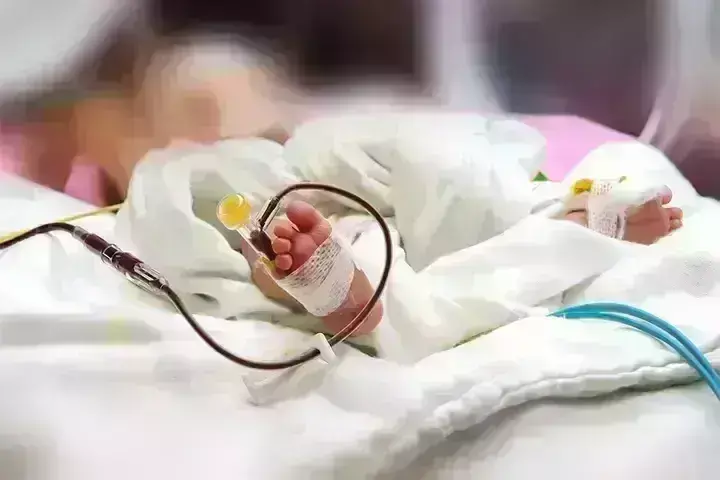- Home
- Medical news & Guidelines
- Anesthesiology
- Cardiology and CTVS
- Critical Care
- Dentistry
- Dermatology
- Diabetes and Endocrinology
- ENT
- Gastroenterology
- Medicine
- Nephrology
- Neurology
- Obstretics-Gynaecology
- Oncology
- Ophthalmology
- Orthopaedics
- Pediatrics-Neonatology
- Psychiatry
- Pulmonology
- Radiology
- Surgery
- Urology
- Laboratory Medicine
- Diet
- Nursing
- Paramedical
- Physiotherapy
- Health news
- Fact Check
- Bone Health Fact Check
- Brain Health Fact Check
- Cancer Related Fact Check
- Child Care Fact Check
- Dental and oral health fact check
- Diabetes and metabolic health fact check
- Diet and Nutrition Fact Check
- Eye and ENT Care Fact Check
- Fitness fact check
- Gut health fact check
- Heart health fact check
- Kidney health fact check
- Medical education fact check
- Men's health fact check
- Respiratory fact check
- Skin and hair care fact check
- Vaccine and Immunization fact check
- Women's health fact check
- AYUSH
- State News
- Andaman and Nicobar Islands
- Andhra Pradesh
- Arunachal Pradesh
- Assam
- Bihar
- Chandigarh
- Chattisgarh
- Dadra and Nagar Haveli
- Daman and Diu
- Delhi
- Goa
- Gujarat
- Haryana
- Himachal Pradesh
- Jammu & Kashmir
- Jharkhand
- Karnataka
- Kerala
- Ladakh
- Lakshadweep
- Madhya Pradesh
- Maharashtra
- Manipur
- Meghalaya
- Mizoram
- Nagaland
- Odisha
- Puducherry
- Punjab
- Rajasthan
- Sikkim
- Tamil Nadu
- Telangana
- Tripura
- Uttar Pradesh
- Uttrakhand
- West Bengal
- Medical Education
- Industry
Freshly irradiated RBC transfusion shows better cerebral oxygenation in preterm infants: JAMA

New Zealand: In a new study conducted by Maria Saito-Benz and team it was found that when compared to transfusion of irradiated and stored red blood cell components, transfusion of freshly irradiated RBCs offered a slight benefit in cerebral oxygenation for at least 5 days following transfusion. The findings of this study were published in the Journal of American Medical Association.
Gamma irradiation of leuko-reduced RBC decreases transfusion-based graft-vs-host disease but also accelerates the establishment of storage lesions in RBCs. In preterm newborns with high transfusion needs, it is uncertain if freshly irradiated RBCs are more effective than irradiated and stored RBCs. As a result, this study was designed to see if transfusion of freshly irradiated RBC components vs irradiated and stored RBC components improved cerebral oxygen supply in preterm babies with anemia.
Between December 1, 2017, and November 30, 2018, a double-blind, single-center, proof-of-concept randomized clinical study was undertaken at Wellington Regional Hospital's newborn critical care unit in Wellington, New Zealand. Participants were preterm newborns with anemia who were at least 14 days old. Participants received non-urgent transfusions, and these events were randomly assigned to either the intervention or control groups. The evaluable population technique was used to examine the data. This study explored transfusion of newly irradiated RBCs.
The key findings of this study were as follows:
1. The trial included 42 babies who had 64 transfusion sessions and were randomly assigned to the intervention (n = 31) or control (n = 33) groups.
2. Immediately after transfusion, babies in the intervention group had a covariate-adjusted mean rise in crSO2 and a mean reduction in cFTOE (0.02; 95% CI, 0.01-0.04) compared to those in the control group.
3. These disparities lasted for 120 hours, or 5 days, after the transfusion.
4. At all of the follow-up time periods, babies in the control group had minimal mean changes in crSO2 or cFTOE.
In conclusion, on-demand irradiation of RBC elements may be explored to enhance oxygen supply in the recipient, however, this physiological discovery has to be investigated further.
Reference:
Saito-Benz M, Bennington K, Gray CL, et al. Effects of Freshly Irradiated vs Irradiated and Stored Red Blood Cell Transfusion on Cerebral Oxygenation in Preterm Infants: A Randomized Clinical Trial. JAMA Pediatr. Published online March 28, 2022. doi:10.1001/jamapediatrics.2022.0152
Medical Dialogues consists of a team of passionate medical/scientific writers, led by doctors and healthcare researchers. Our team efforts to bring you updated and timely news about the important happenings of the medical and healthcare sector. Our editorial team can be reached at editorial@medicaldialogues.in.
Dr Kamal Kant Kohli-MBBS, DTCD- a chest specialist with more than 30 years of practice and a flair for writing clinical articles, Dr Kamal Kant Kohli joined Medical Dialogues as a Chief Editor of Medical News. Besides writing articles, as an editor, he proofreads and verifies all the medical content published on Medical Dialogues including those coming from journals, studies,medical conferences,guidelines etc. Email: drkohli@medicaldialogues.in. Contact no. 011-43720751


